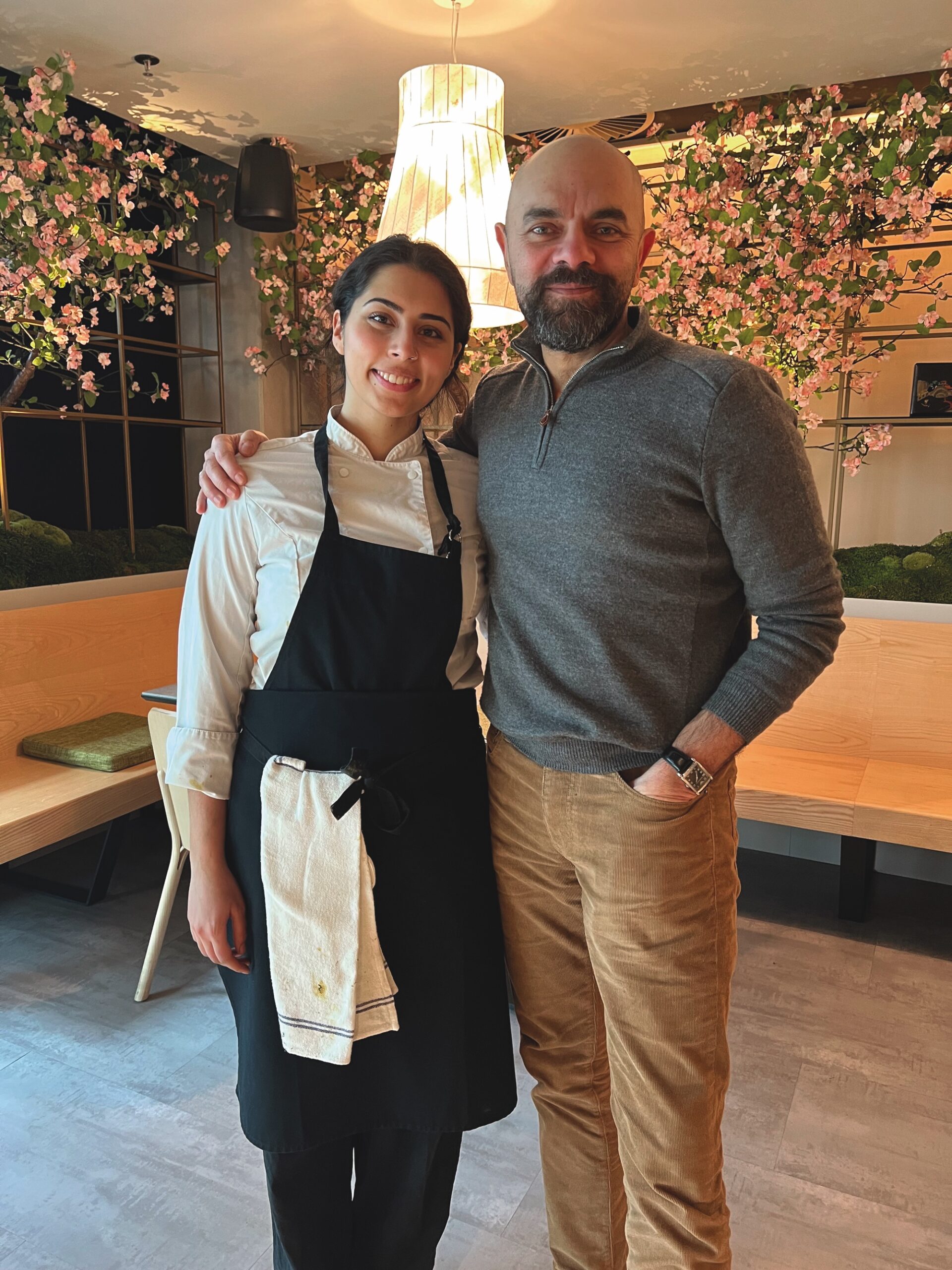
Chef Laila Mirza and her father Dr. Ehsun Mirza, MD – ICU doctor
Text: Laila Mirza; Photo: Archive
When Her Excellency Ambassador Ayesha Ali approached me and asked if I would be interested in collaborating with a restaurant in Prague to showcase Pakistani food in a more fine-dining environment, I brainstormed for weeks on how to create the perfect blend of East and West. I think I found the aesthetics the hardest, as the food is presented naturally in large sizes. I decided against a minimalist approach and instead tried to refine it while keeping the colours and vibrancy that our food is known for.
Pakistani food is about sharing
There comes a moment in your adolescence where you become conscious of the memories you’ve held since childhood—vague and hazy scenes depicting family, friends, experiences, and thoughts. I think more than the details it’s the feelings that you remember most. It’s like you’re trying to grasp at straws, and the most you can come up with is a taste, or a smell, or the way something made you feel. For me, it was always food.
My parents immigrated to the United States from Pakistan in the ‘90s and had me and my two brothers in the States. For them, it was about giving us a better life and a more secure future. But, luckily for us, it didn’t mean giving up our culture or heritage. Ever since I can recall, our entire life revolved around food and cooking. The kitchen was our mecca, and the aromas emanating from it all day long laid the foundation of our childhood.
We would often sit at the kitchen island, completing our homework as my mother or grandmother cooked food. In between assign- ments, we’d be helping chop tomatoes, learn how to peel garlic, or slice kilos of onions for one of the many dishes that would be made. It wasn’t an option whether or not my brothers would eat the food. Dinners were mandatory, and the entire family came together every night to eat. If there was something we didn’t like? Too bad. There were many a time my younger brother was forced to choke down okra (a dish that I loved), or I was made to eat keralas (bitter gourd), a dish that I still dislike to this day.
In hindsight, I think my parents wanted us to stay connected to our roots, a worthy cause as it is Laila Mirza, Chef and her team at Silq restaurant – Prague incredibly easy to assimilate completely and lose all aspects of your heritage. For Pakistanis, food is our lifeblood, and most of our socializing and community building occurs around the act of breaking bread with loved ones.
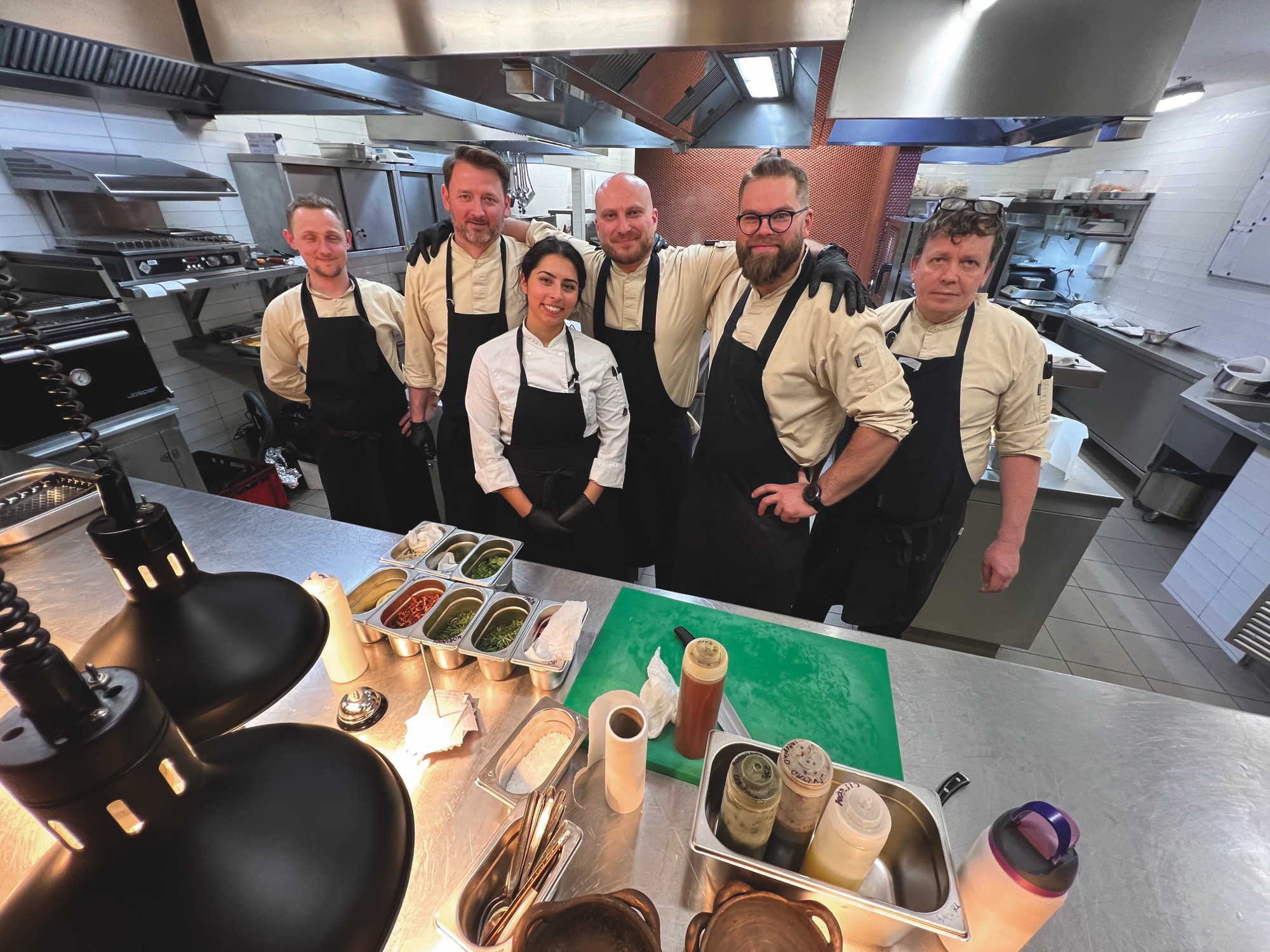
Laila Mirza, Chef and her team at Silq restaurant – Prague
Is Pakistani food able of Western fine dining?
Pakistani food inherently promotes sharing and family-style dinners. From large curries, huge pots of rice, whole chickens, stacks of flatbreads, and desserts for days- there is never the fear of getting underfed at a Pakistani dinner. The ethos very much exudes “more is more,” and nobody can leave hungry or empty-handed. So, one can imagine that it’s easy to fall in love with cooking and the act of feeding others. It’s what introduced me to my love for cooking and what ultimately led me to pursue it as a career path.
However, as good as Pakistani food is, there’s an attitude that it’s not able to compete with Western fine dining. As someone who has professionally trained in Western cuisines and worked in upscale and modern restaurants, I knew that Pakistani food had the capacity to be transformed into a more sophisticated product; it just had to be treated accord- ingly. Don’t get me wrong; it was not an easy thing to conceive, and it really pushed the limits of my imagination.
However, when Her Excellency Ambassador Ayesha Ali approached me and asked if I would be inter- ested in collaborating with a restaurant in Prague to showcase Pakistani food in a more fine-dining environment, I knew that I had to do it. I brainstormed for weeks on how to create the perfect blend of East and West, which was honestly harder than I thought! I wanted to make sure I kept the beauty of Pakistani food, which is the complex flavours and spices, while refining it so that people of a European palette enjoy it. I think I found the aesthetics of it the hardest, as the food is presented naturally in large sizes, and it can feel hard to make it look refined and minimalist. I decided against a minimalist approach and instead tried to refine it while keeping the colours and vibrancy that our food is known for.
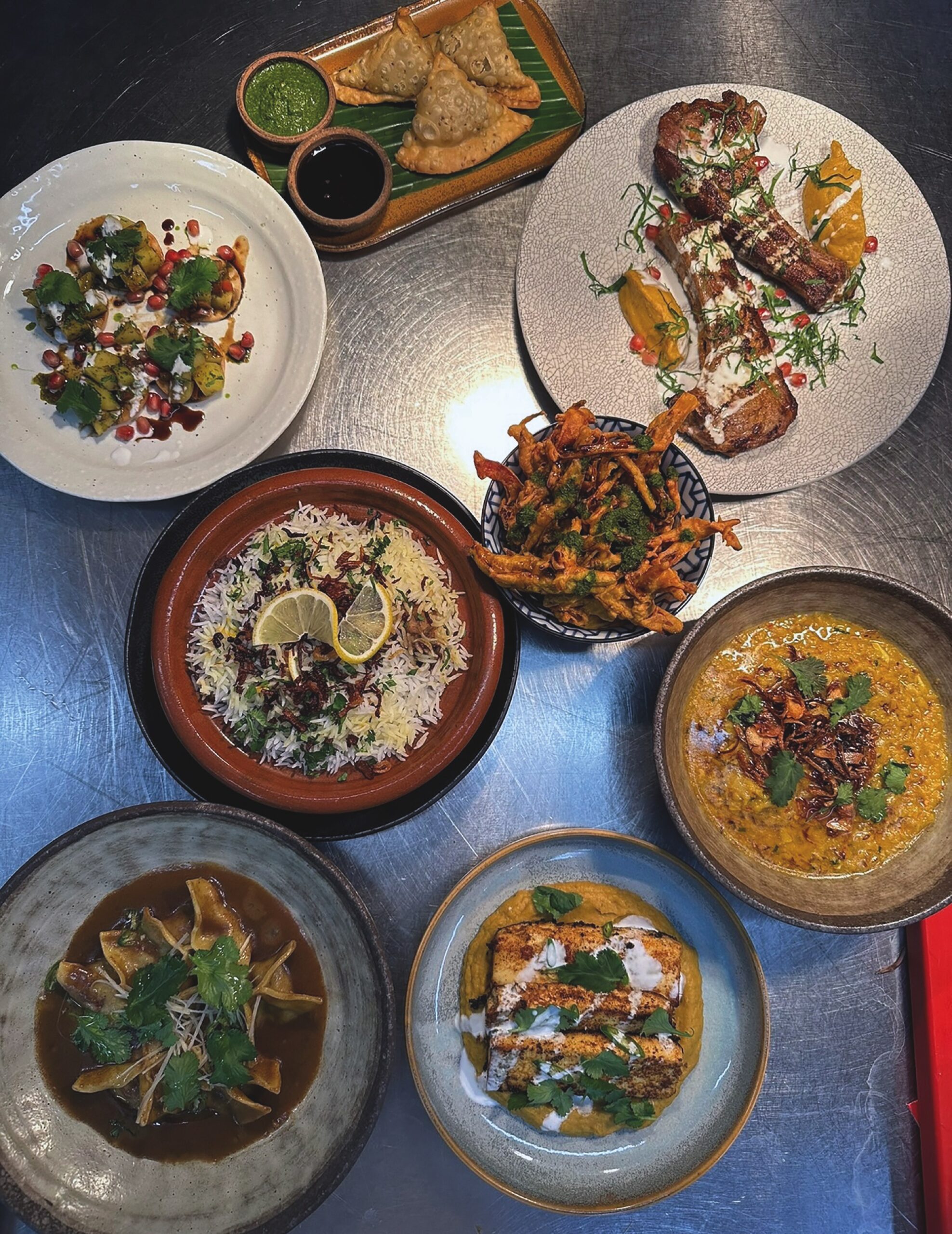
A menu is just a menu, until the people come
Finally, I decided for the following menu to be served in SILQ restaurant in Prague during the Pakistan Cuisine Week hosted by Ambassador.
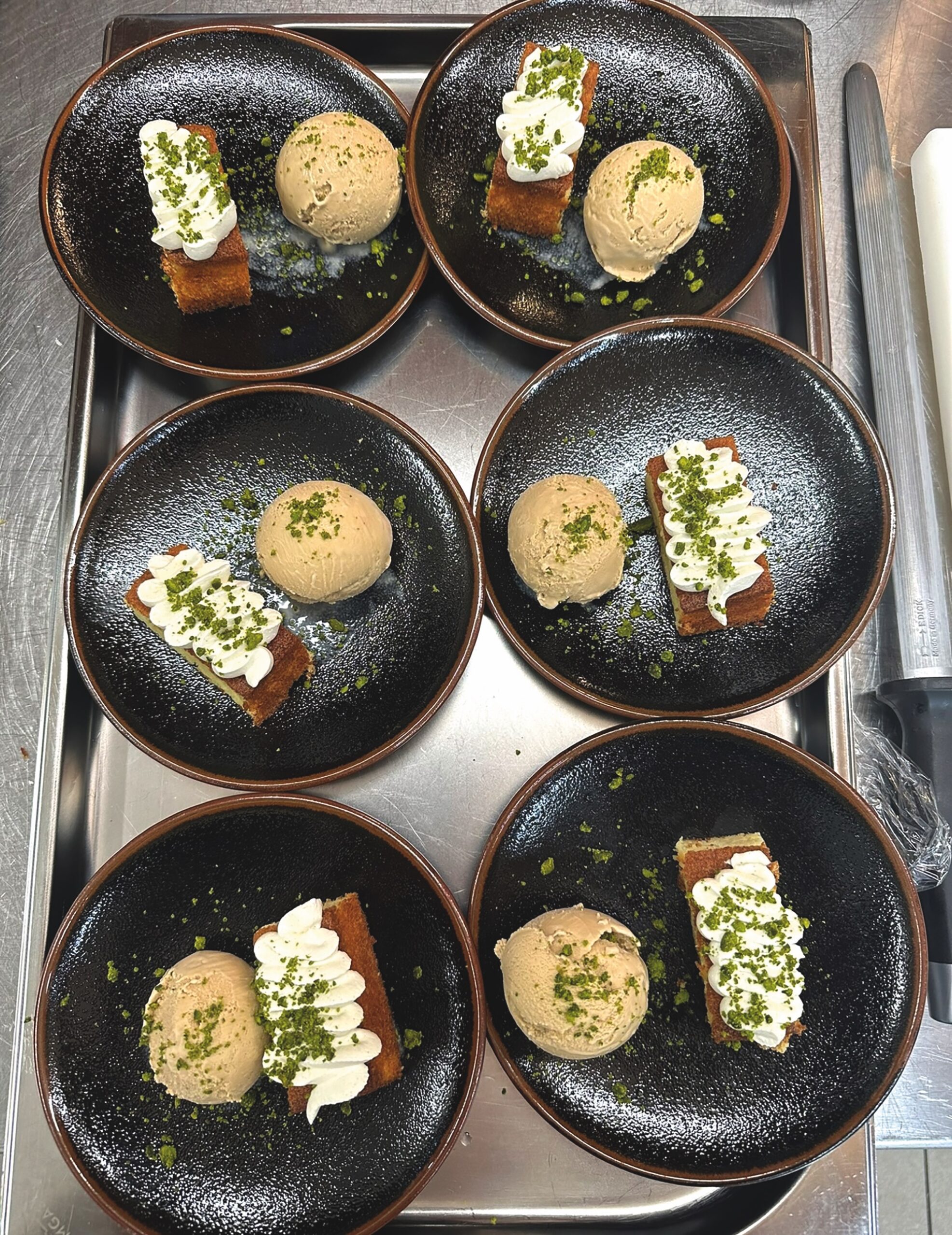
Mixed Veggie Pakoras
Thinly sliced vegetables coated in a spiced chickpea batter and deep-fried. Drizzled with tamarind and green chutney.
Lamb Samosas
Spiced lamb is stuffed into flaky pastry dough, shaped into triangles, and deep-fried.
Aloo Chaat on Papri
A mixture of potatoes, vegetables, and chutneys. Served on top of flaky cumin crackers.
Nihari Ravioli
A beef stew that is slow cooked over hours and thickened with Atta, a finely milled wholegrain flour. I shredded the meat, stuffed it in ravioli, and served it in a glossy Nihari sauce.
Chicken Biryani
A fragrant rice and chicken dish that is initially cooked separately, but then it is layered and steamed so that the flavours meld with each other.
Tandoori Lamb Chops with a Spiced Cauliflower Puree/ Tandoori Paneer with the same
Smoky and spicy lamb chops/ paneer are marinated in yogurt and spices. Then, it’s grilled and served with a cauliflower puree, pomegranates, and yogurt.
Daal Tharka
A Pakistani classic consisting of lentils and spices simmered together until thick and flavourful. Served with a spiced butter on top.
Parathas
Flaky flatbreads layered with ghee and flour.
Chai Masala Ice Cream
A creamy and spicy ice cream made by infusing chai into the cream.
Orange and Saffron Cake
A gluten-free soft and light tea cake made with orange juice, saffron, and rose water.
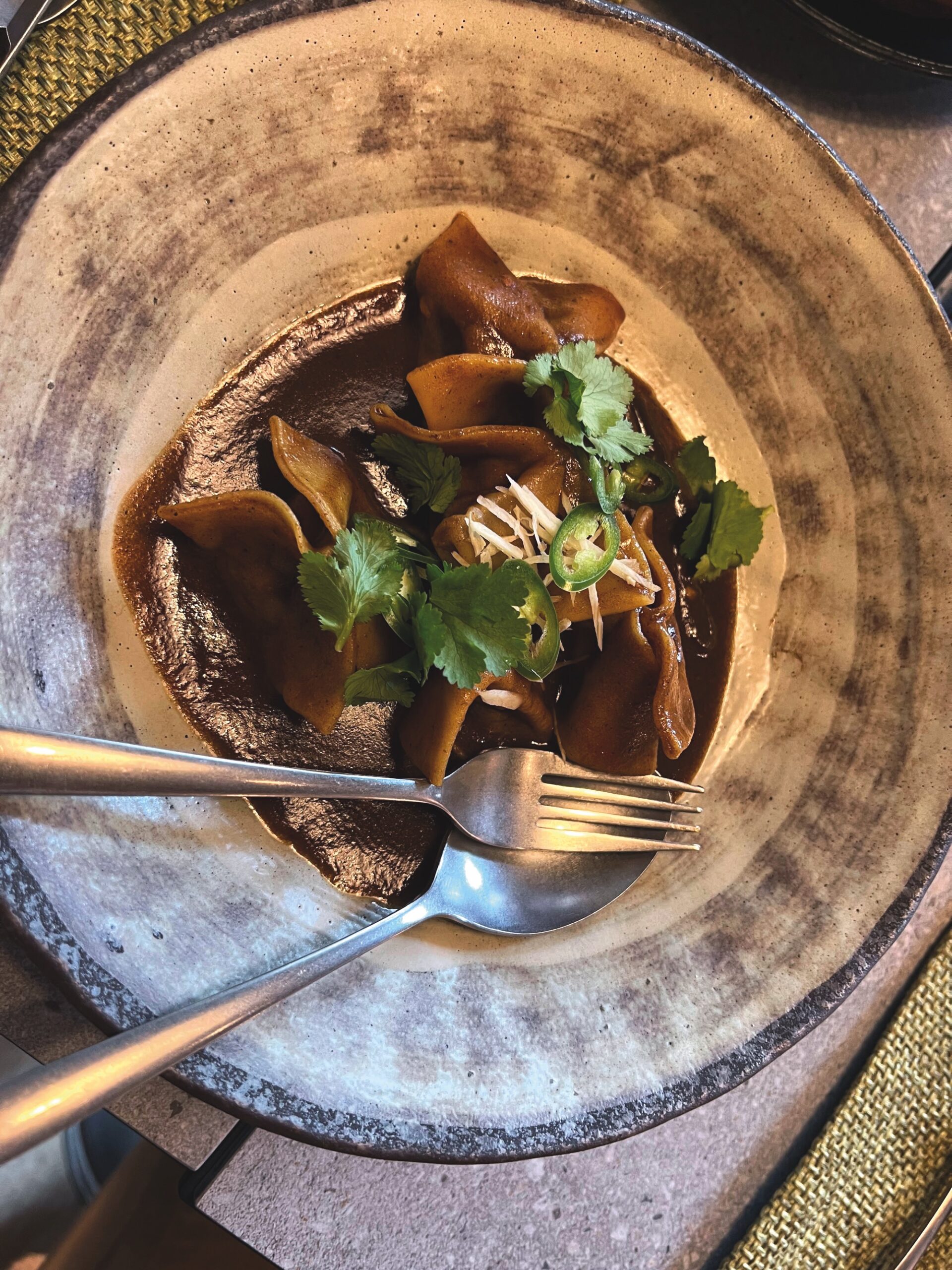
While an extensive menu, I felt so proud of the fusion that the team and I were able to create. It’s not easy representing your country to people who have never tasted the food, and I am so happy with the way everything turned out. It was really rewarding to know that it was possible to elevate Pakistani food to the place that I know it can be. A menu is only a menu until it’s executed, and I was so privileged and honoured to expose so many people to the beauty and pride that is Pakistani food.
Laila Mirza, Chef
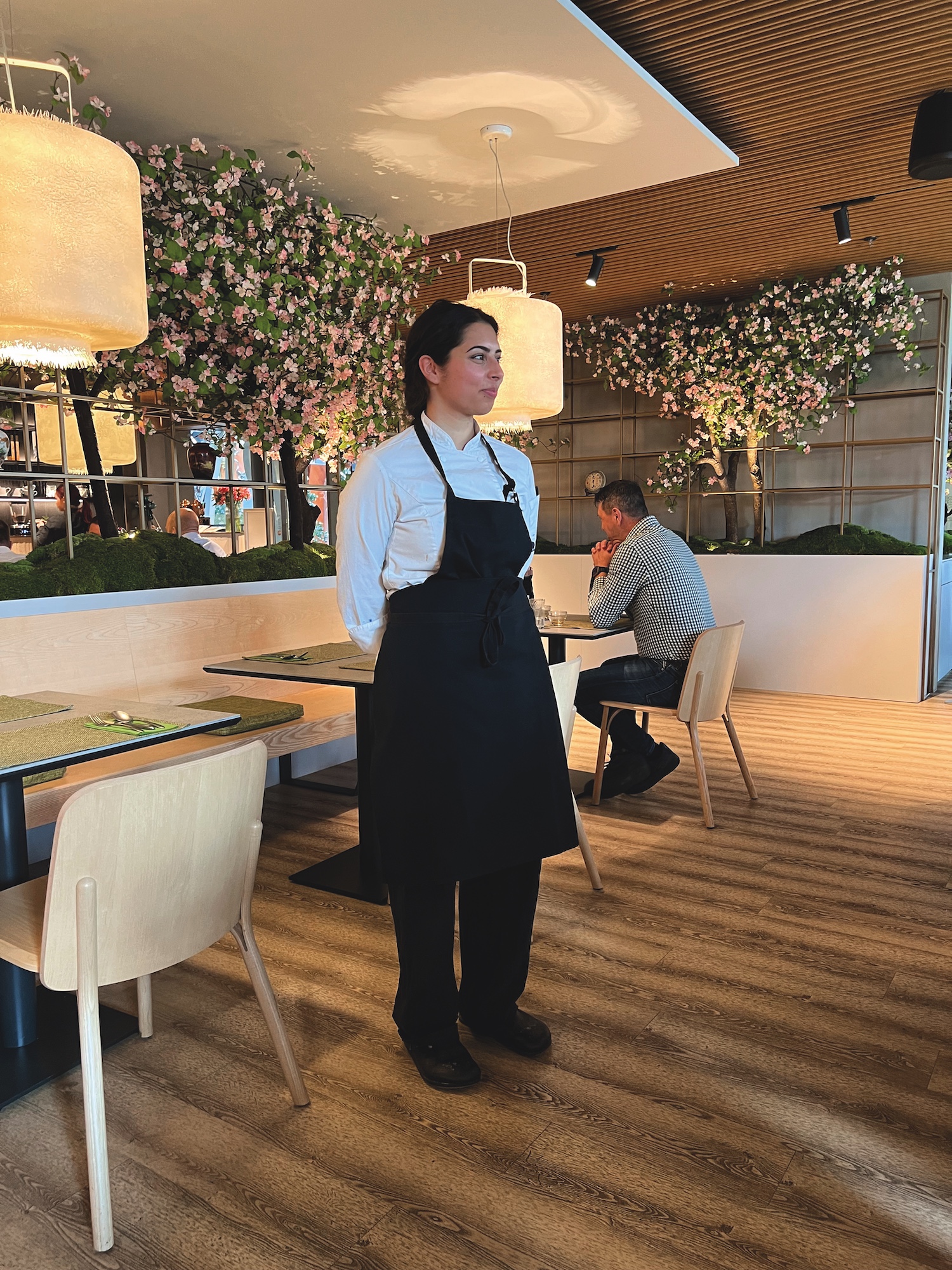
Chef Laila Mirza

